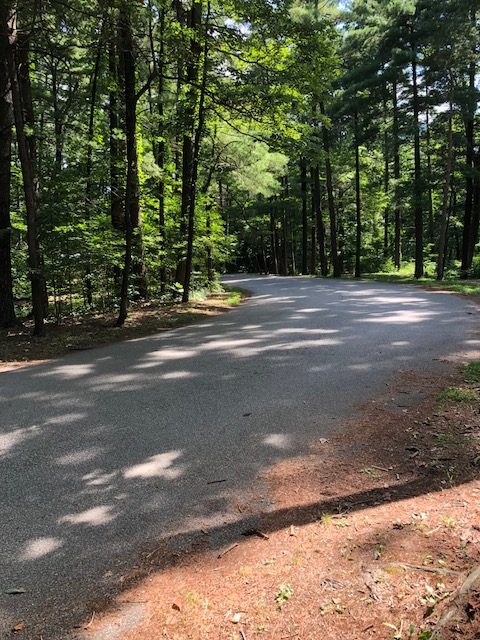by Donna Poole
Pass me a plate of pasta and I’m a kid again, smelling Mom’s homemade sauce simmering on the back of the stove where it’s been getting thicker and more delicious by the hour. On rare occasions—Dad’s birthday was one—Mom made handmade pasta to go with the sauce. She covered the backs of chairs with cotton dish towels and draped the long, floury noodles over them to dry. We kids could hardly wait until supper time.
Some things were abundant at our house; discipline was one, but food was not. We were still hungry after we finished some meals, especially if meat was involved. Buying enough meat to feed that many people was a challenge not even my resourceful Mom could surmount. Sometimes she would apologize.
“I’m sorry I only have enough pork chops for each of you kids to have one.”
“That’s okay, Mom. Really!”
We always assured her we didn’t want more than one piece of meat anyway, and we weren’t just being polite. Mom was an excellent cook except when it came to meat. Dad insisted all meat be cooked until the only taste left was charcoal briquette. No matter how thoroughly we chewed it, sometimes it scratched our throats all the way down when we swallowed. It’s a wonder we didn’t all become vegetarians. My sisters still aren’t big carnivores!
It didn’t matter if we left the supper table a bit hungry; we always had a bowl of ice cream before bed. If I remember right Mom was able to buy a half gallon of chocolate, strawberry, vanilla, Neapolitan, or maple walnut for fifty-nine cents.
But oh when spaghetti night rolled around once a week! Not only was it delicious; it didn’t scratch your throat, and you could eat until you were full! And eating was fun! Some people cut pasta, but real Italians twirl it on a fork, sometimes with the aid of a spoon. An Italian kid, however, knows the best way to enjoy spaghetti. Put a tiny piece in your mouth and slurp the rest of the long noodle in!
My sister Mary and I especially enjoyed the slurping method. Surprisingly, Mom, the disciplinarian in the family, didn’t correct us, but our way of eating pasta accompanied by our laughter bothered Dad.
“Girls,” he warned, “the first time sauce from your spaghetti splashes on me you’re both finished eating.”
We didn’t take him seriously. Dad never disciplined us. Even when Mom, in desperation called into the living room after supper, “Dominic! Do something with those kids!” his reaction was to give his newspaper a quick shake and raise it an inch higher.
Dad? Send us away from the table when we were still hungry on spaghetti night? Not likely.
We kept laughing and slurping. I don’t know who did it. I’ll blame Mary since she’s in New York and I’m in Michigan and she won’t know about it until she reads this. Mary’s slurped spaghetti sent sauce sailing across the table and slapped Dad right in the face.
“That’s it! Donna and Mary Lou, you’re done eating. Leave the table.”
He doesn’t mean it.
But he did. And I remember that punishment with more sorrow than I do any of the hundreds of disciplinary actions that Mom gave us. Still, I’m not sorry. Given the chance, I’d sit at that table again with my sister, slurp, and laugh.
I wish you could have seen Mary then, a perfectly heart-shaped face, long dark brown braids, and eyes almost black and dancing with fun. She was my partner in crime, but usually the innocent partner. If I were a betting woman, I’d bet the house it was me and not she who slurped the sauce and incurred the rare wrath of Dad.
I still love spaghetti. Last Sunday Kimmee, our daughter, and Drew, our son-in-law, spent hours making me homemade pasta for my birthday. It was delicious. It was comfort food. It tasted like home and heaven.
I like thinking about heaven. I realize some of my views are less than traditional, but the Bible doesn’t tell us enough about heaven for any theologian with advanced degrees up to wazoo to contradict me. I hope.
I know heaven will be Home in the best sense of the word where brothers and sisters will no longer have anything but love for each other left in their hearts, and I long for that. I know heaven will be ultimate comfort because God promises to wipe away all tears. I like to imagine a big table that goes on for miles. When supper time comes, we’ll eat spaghetti with homemade pasta. I’ll sit next to my three sisters, and all four of us will slurp, even though Eve, the oldest and already in heaven, is the one who taught me how to twirl my noodles. Yes, Eve, Mary, Ginny, and I will slurp and laugh, and if anyone doesn’t want to get splashed—Dad—you better sit at the far end of the table.
Just one question remains. How do we get to heaven? When I was a spaghetti slurping little girl, I saw the answer to that written in calligraphy across the front of the auditorium at Tabernacle Baptist Church in Ithaca, New York. Every time I sat in those pews, happy, sleepy, and comfortable, hearing the voices of young and old around me singing the familiar hymns, I saw the words.
“Christ died for our sins…and that he was buried, and that he rose again the third day, according to the Scriptures.”
All that was left for me to do was believe and I did. I hope you will too, because when I look down that long, long table at Home, I can’t imagine not seeing you there. I can hardly wait until supper time.















